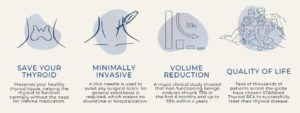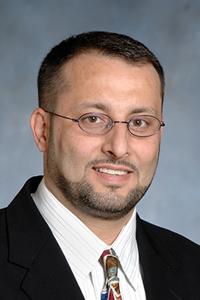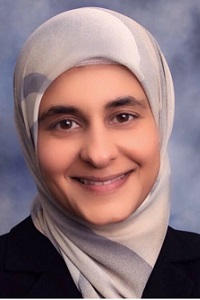
Thyroid Radiofrequency Ablation (RFA)
Thyroid nodules can cause many problems for patients, even if they are non-cancerous. They can cause swelling, breathing problems, and persistent coughing. Learn about a non-surgical treatment called Thyroid Radiofrequency Ablation.
What is radiofrequency ablation?
Thyroid RFA is a minimally invasive and non-surgical procedure that treats thyroid nodules. Guided by ultrasound imaging, the nodule is accurately located, and doctors can deliver the radiofrequency waves with precision, to heat them up, and shrink them.
What to expect, Step by Step
Numbing agent will be applied under the skin surrounding your thyroid gland. Once you are relaxed and your neck is numb, your doctor will use the ultrasound guided imaging to locate the nodule. A thin electrode will be inserted into the nodule and the doctor will allow a carefully controlled amount of energy to flow into the tissue and the process will be repeated until the nodule is completely treated. During the procedure, you will be able to breathe, swallow, and speak normally.
With the sustained RFA thermal heat, the nodule is degenerated to the point where the tissue will be able to flow through the body, naturally, as waste.
Will it hurt?
Because local anesthesia is administered before the procedure, very few patients experience any pain at all. Following your treatment, you will be given ice packs and pain medication, if needed.
Why choose Thyroid RFA?
Thyroid RFA is a quick, safe opinion that allows patients to resume normal daily activity almost immediately with a minimal recovery period. With surgery, you’ll need lifelong treatment with medication to supply your body with the normal amount of thyroid hormone.
Benefits of Thyroid RFA
- Preserves the healthy thyroid tissue
- Allows thyroid functionality without the need for lifetime medication
- Non-surgical/minimally invasive procedure
- No scarring
- Performed under anesthesia
- Performed as an out-patient procedure, meaning no hospitalization or downtime.
- Shorter recovery times
- Increased quality of life
- Volume reduction

Risks of Thyroid RFA
All treatments and procedures have risks and these will be discussed in detail with you by your doctor.
- Serious complications are rare. The main risks are bleeding, hoarse voice due to nerve bruising, skin burns and infection. Infection can be a delayed problem and present with swelling, pain and redness.
- Rare serious complications can include damage to the food pipe (esophagus), wind pipe (trachea) and nerves to the voice box (vocal cords). The risk of permanent injury to the voice box nerve leading to alteration in the voice is less than 1% (less than 1 in 100).
- Larger nodules could require more than one treatment for effective nodule shrinkage. Your doctor will discuss the likelihood of needing additional treatments with you during your initial assessment.
Continue this discussion with a Doctor with advanced RFA training.
Please call (313) 203-5300 to get in contact with an Endocrinologist with training in Radiofrequency Ablation.

Dr. Ayman H Elkadry, M.D., F.A.C.E Endocrinologist

Opada Alzohaili, M.D., F.A.C.E
Endocrinologist

Saadia Mian, M.D., F.A.C.E., E.C.N.U.
Endocrinologist
